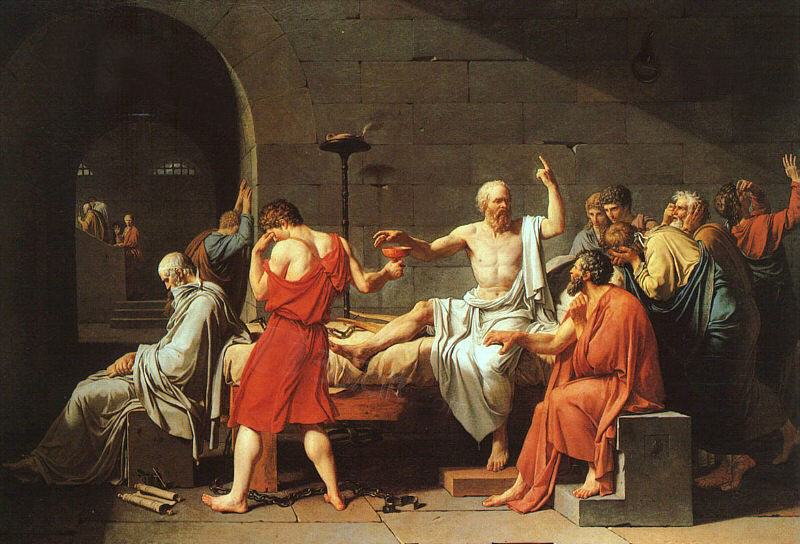Contrary to their claims, the New Atheists do have a creation myth. It goes something like this: emerging from darkness into the light, Enlightenment thinkers cast off the shackles of religion and, in so doing, ushered in an age of reason. For the likes of Richard Dawkins, a founding member of the movement, this is an article of faith, and he’s spent recent years casting himself not just as an heir of this tradition, but also as its modern day guardian.
When Dawkins speaks of the Enlightenment one knows what he means — he is talking about Locke and Hume and Newton and the triumph of the scientific method. He is not talking about the Enlightenment of Isaiah Berlin and its legacy of monism, which, he argued, tends to authoritarianism; nor is he talking about the Enlightenment of Max Horkheimer and Theodor Adorno, with its scientific racism and state absolutism and from which, they claimed, a direct line could be drawn to the Holocaust.
Blissfully unaware and lacking even an iota of self-doubt, it’s become something of a periodic rite for Dawkins to take to Twitter to demonstrate that he is far more a custodian of the Enlightenment he rejects than the one he accepts. His latest flirtation with the merits of eugenics is a case in point:
‘It’s one thing to deplore eugenics on ideological, political, moral grounds. It’s quite another to conclude that it wouldn’t work in practice. Of course it would. It works for cows, horses, pigs, dogs & roses. Why on earth wouldn’t it work for humans? Facts ignore ideology.’
Science and ethics, in this formulation, occupy two distinct spheres. For Dawkins, unethical science is not ipso facto bad science.
One sees many of these same shortcomings in his atheism, which is fundamentalist at its core. Instead of dealing with theological questions in a serious or meaningful way, he relies almost exclusively on literalist readings of religious texts. It is fideism dressed up as rationalism. Those who believe such fantasies, in the worldview of the New Atheists, are unenlightened idiots, not yet liberated from God.
Their model of freedom is based on an ethics of choice — belief is simply a matter of weighing up the evidence and making a decision accordingly.
This notion shares some striking similarities with rightwing libertarian notions of free will and, specifically, the idea that the freedom of choice is the highest form of freedom. In contemporary politics this manifests itself in a reductive biologism that’s dismissive of structural inequalities (we are all masters of their own destiny, etc.) and an unwavering commitment to the free market (regulations being unjust restrictions on the choices available to individuals).
In a recent piece for Overland, Jeff Sparrow pointed out that Dawkins — ‘the dreary boor regularly popping up in your social media feed with yet another drunken uncle tweet about gender or race‘ — hasn’t changed in recent years; rather, the world has. But Sparrow doesn’t cover all the monumental forms that change has taken.
The God Delusion was published in 2006, two years prior the Global Financial Crisis (GFC), the worst financial crisis since the Great Depression. For many, the GFC dashed any sense of optimism and laid bare the fundamental immorality of the market. While the financial institutions were bailed out, those who’d lost everything because of the reckless and dishonest conduct of bankers were left destitute.
Since then, developed economies have shown little interest in making the necessary reforms to address inequality and prevent another crisis. Naturally, many people who’ve come of age in the shadow the GFC have begun to question the neoliberal consensus that’s been in place since the 1970s, expressed most obviously in support among young voters for unapologetically anti-capitalist politicians like Jeremy Corbyn, Bernie Sanders and Alexandria Ocasio-Cortez.
Significant mass movements have developed around these figures not simply because they are committed to fighting the structural inequalities imposed from above, but because they also provide an alternative to the nihilism of unbridled capitalism and commodification. God didn’t die — he was superseded by the god of materialism. Capitalism has atomised societies, undermined meaningful communities and left people feeling alienated and alone. ‘Anti-capitalism,’ wrote Mark Fisher, ‘must oppose Capital’s globalism with its own, authentic, universality.’
The New Atheists — partly because they derive their identity from what they oppose, rather than what they believe — have never provided convincing remedies to the nihilism Nietzsche sensed with uncommon acuteness, nor do they offer the promise of a universal project. The Hindu in rural India is no less of a dupe than the Baptist in America or the Muslim in Libya. But if atheism is a precondition of your supposedly progressive movement, then it’s going to exclude most of the world’s population.
Dawkins the biologist brought the wonder and splendour of the natural world to mainstream audiences, but for Dawkins the atheist that complexity and nuance doesn’t seem to extend to the realm of human thought. He would do well to heed the warning of one of the Enlightenment’s most important thinkers: ‘Doubt is an uncomfortable position,’ wrote Voltaire, ‘but certainty is a ridiculous one.’
This was originally published in Eureka Street on 27th February, 2020.

